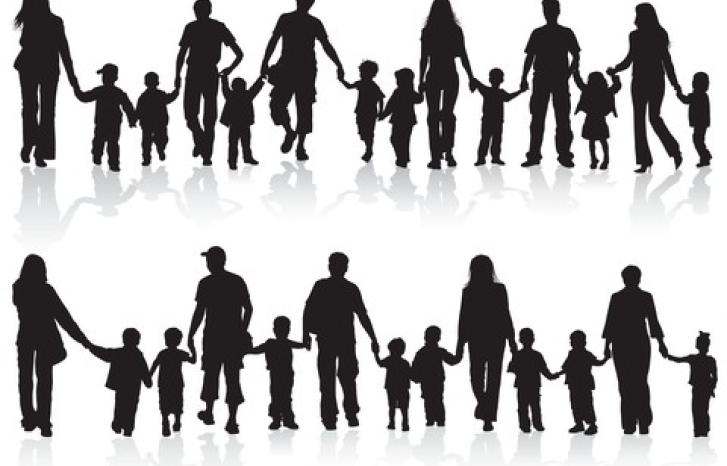This is the conclusion in Roger Ekeberg Henriksen’s PhD thesis, recently defended at the University of Bergen.
“My study does not prove that the first thing leads to the second. But those who report that they are dissatisfied in their relationship more often report illnesses during pregnancy. Their children are also reported ill more often during their first year.”
“If you compare the group of pregnant women with the lowest satisfaction to the group with highest satisfaction in their relationship, the first group’s risk of becoming ill is more than twice that of the second group.”
Henriksen emphasises that the gap between the groups is major. He adds that the respondents’ level of education and income are above average, and so is the level of satisfaction in their relationship. But since the study is so comprehensive, all levels of society are represented.
When it comes to the children, the connections are even more obvious than with the pregnant women. Henriksen looked at the occurrence of eight different infectious diseases, from the common cold to stomach flu and inflammation of the ear. With children up to six months, the occurrence of all eight infections was higher when the mothers were dissatisfied in their relationship.
Constant stress
In his thesis, Henriksen refers to research on stress in order to explain the connections between bad relations and physical illness.

“Relationship researchers have been interested in psychological factors such as depression and life quality. These are, of course, interesting and relevant factors. But when I was working with my Master’s thesis, which was about shyness and somatic diseases, I was surprised to see how social isolation and loneliness directly affect the physiology.”
“You have a psychological experience, but how does this become a physical illness that makes you vomit or gives you a fever of a cough? This is an exciting path. If the idea is that stress makes us ill, we’ve already seen that there are individual variations and that social support is important.”
Stress responses are completely natural to the body. For instance, they enable us to mobilise quickly in order to avoid dangers. In such situations, some bodily functions are prioritised before others, and the brain in particular is given extra energy under stress. When the stress response is transferred to the unborn child during pregnancy, evolution researchers claim that this helps the unborn child prepare for the world outside.
It is not natural to remain in a stressed condition, however. If this happens, our immune system may be given lower priority, and we thus become less resistant towards infectious diseases from bacteria and viruses. According to Henriksen, this is the effect that comes into play in his research.
“You have a psychological experience, but how does this become a physical illness that makes you vomit or gives you a fever of a cough?”
“If we look at brain research and other research on physiological mechanisms, we see that having a partner who is predictable and supportive may be decisive for our ability to handle stress. On the opposite side, stress responses may occur with the absence of social support.”
Mother-child-survey
The thesis is based on the Norwegian Mother and Child Cohort Study (MoBa), a health study that has been collecting data about mothers and their children since 1999. The study of pregnant women’s infectious diseases includes more than 67.000 women. The study of children’s infectious diseases includes nearly 91.000 women and more than 100.000 children.
In order to measure contentment in the relationship, the women in the survey have responded to whether or not they agree with ten statements such as “My partner and I have a close relationship”, “I often think about ending the relationship”, and “I’ve been fortunate in my choice of partner”. An average value has then been estimated and used in the analyses.
“This is a relatively well validated instrument,” says Henriksen.
“Your findings are based on the mothers’ self-reporting of their own and their children’s diseases. Is there a risk that this might be a significant source of error?”
“We have research showing that mothers who are not doing too well are quicker to report symptoms with their children than others. But we have reason to believe that there is a clear connection here, not least because we see such a consistent pattern,” Henriksen explains.
See also: The women's cancer nobody talks about
Knowledge gap
Previous studies have shown similar connections. In 2011, Danish researchers published a study of all Danish children born between 1977 and 2004. They studied which children who were hospitalised due to infections during their first year and later. Furthermore, they looked at the occurrence of stressful events (such as the loss of a child or a partner, or divorce) in the mother’s life before and during pregnancy.
They found a major overlap between mother’s life experiences and the child’s risk of hospitalisation. During their first year, children who were exposed to stressful life events during pregnancy had a 67 per cent higher risk of hospitalisation due to infectious diseases than children who were not exposed to similar events. The risk of infectious diseases decreased as the children grew older. It was also significantly lower among children whose mothers experienced stressful life events before pregnancy.
“Dissatisfaction with your partner during pregnancy should be considered a risk factor for reproductive health.”
None of the studies can maintain with certainty whether these findings reflect biological effects or other factors that affect the mothers and children’s health indirectly. But Henriksen is hoping that further research on the field may contribute to filling a knowledge gap.
“For a long time we’ve been aware of the fact that stress may have a negative effect on your health, but it’s important to draw attention to the fact that social relations are at least as relevant as other factors. This applies to both partner relationships and social support from friends and family. In many instances this is also something that can be easily improved.”
“This survey is about mother and child; shouldn’t men also be studied?”
“Absolutely. Some very interesting differences have been observed between men and women. Men generally report less health issues than women, but once they break, their breakdown is much more severe when the emotional social support – which often comes from their partner – disappears.”
Public health perspective
Henriksen does not wish to contribute to an increased worrying of pregnant women, but he believes that health personnel should be made aware of the significance of the partner relation.
“If there’s a lot of stress in your life and you have few good relations, this should be given particular attention. It might be a good idea to talk to your midwife or your general practitioner about this.”
He also thinks his findings are interesting from a public health perspective.
“We need to be aware that although these diseases are harmless for most of us, research shows that in a general population perspective, infections during pregnancy may lead to complications and diseases later in life,” says Henriksen.
“Dissatisfaction with your partner during pregnancy should be considered a risk factor for reproductive health.”
Sources: Societal Relationships, Stress and Infection Risk in Mother and Child, Roger Ekeberg Henriksen, University of Bergen, 2016
Prenatal Stress and Risk of Infectious Diseases in Offspring, Nielsen et al., American Journal of Epidemology, no. 9 2011.
Translated by Cathinka Dahl Hambro


